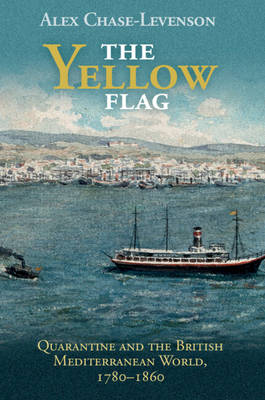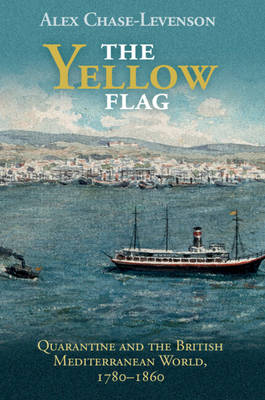
- Afhalen na 1 uur in een winkel met voorraad
- Gratis thuislevering in België vanaf € 30
- Ruim aanbod met 7 miljoen producten
- Afhalen na 1 uur in een winkel met voorraad
- Gratis thuislevering in België vanaf € 30
- Ruim aanbod met 7 miljoen producten
Zoeken
€ 47,95
+ 95 punten
Omschrijving
Until the middle of the nineteenth century, quarantine laws in all Western European nations mandated the detention of every inbound trader, traveller, soldier, sailor, merchant, missionary, letter, and trade good arriving from the Ottoman Empire and North Africa. Most of these quarantines occurred in large, ominous fortresses in Mediterranean port cities. Alex Chase-Levenson examines Britain's engagement with this Mediterranean border regime from multiple angles. He explores how quarantine practice laid the foundations for the state provision of public health and constituted an early example of European integration. Situated at the intersection of political, cultural, diplomatic, and medical history, The Yellow Flag captures the texture of quarantine as an experience, its power as an administrative precedent, and its novelty as an example of a continental border built from the ground up by low-level bureaucrats.
Specificaties
Betrokkenen
- Auteur(s):
- Uitgeverij:
Inhoud
- Aantal bladzijden:
- 319
- Taal:
- Engels
- Reeks:
Eigenschappen
- Productcode (EAN):
- 9781108707282
- Verschijningsdatum:
- 27/10/2022
- Uitvoering:
- Paperback
- Formaat:
- Trade paperback (VS)
- Afmetingen:
- 152 mm x 229 mm
- Gewicht:
- 430 g

Alleen bij Standaard Boekhandel
+ 95 punten op je klantenkaart van Standaard Boekhandel
Beoordelingen
We publiceren alleen reviews die voldoen aan de voorwaarden voor reviews. Bekijk onze voorwaarden voor reviews.











